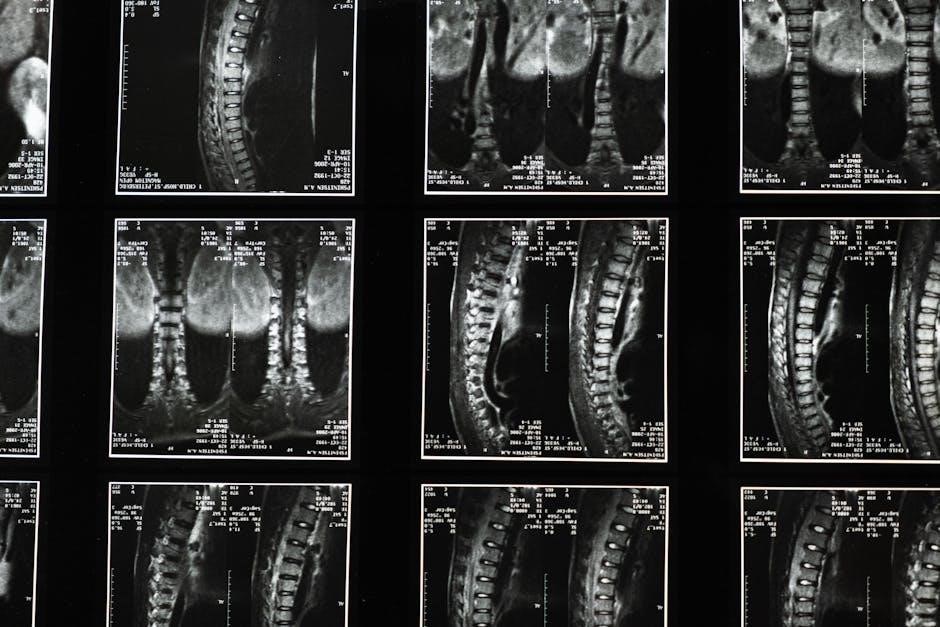Stephanie Foo’s What My Bones Know is a powerful memoir exploring her journey with complex PTSD, blending personal narrative with scientific research into trauma and recovery. Offering hope and insight into mental health, it’s a testament to resilience.
Overview of the Book
What My Bones Know by Stephanie Foo is a deeply personal and researched memoir that delves into the author’s journey with complex PTSD. Born into a fractured immigrant family, Foo recounts her tumultuous childhood, marked by abandonment and abuse, and how these experiences shaped her life. Diagnosed with complex PTSD in her thirties, she grapples with the condition’s impact on her health, relationships, and career. The book combines Foo’s intimate narrative with interviews from scientists and psychologists, exploring innovative therapies and the intergenerational effects of trauma. It also examines the mind-body connection and the immigrant community’s struggles with inherited trauma. Ultimately, the memoir offers a hopeful perspective on healing, emphasizing that while trauma cannot be erased, it can be navigated and integrated into one’s life.

Author Background: Stephanie Foo
Stephanie Foo is an acclaimed journalist and radio producer, best known for her work on This American Life. Born in California to an immigrant family, she rose to prominence through her storytelling and investigative skills. Foo’s career has been marked by her ability to shed light on underexplored topics, earning her recognition in the journalism field. Her personal journey with complex PTSD led her to write What My Bones Know, a memoir that intertwines her experiences with scientific research on trauma and recovery. Through her work, Foo has become a significant voice in mental health advocacy, offering hope and insight into the complexities of healing and resilience.

Understanding Complex PTSD
Complex PTSD results from prolonged trauma, impacting emotional regulation and relationships. Stephanie Foo’s memoir highlights its profound effects and the challenges of diagnosis and recovery.

Definition and Diagnosis of Complex PTSD
Complex PTSD arises from prolonged, repeated trauma, such as abuse or neglect, differing from standard PTSD in its chronic nature. Diagnosis often involves emotional dysregulation, hypervigilance, and relationship challenges.
The Science Behind Trauma and Recovery
Complex PTSD stems from prolonged trauma, impacting brain development and stress response systems. Stephanie Foo’s memoir delves into the science, exploring how trauma affects mental and physical health. She examines the role of cortisol, adrenaline, and their effects on the body. Foo also investigates emerging therapies like somatic experiencing and eye movement desensitization. Her research highlights the mind-body connection and the potential for healing through innovative approaches. By bridging personal experience with scientific inquiry, Foo offers a comprehensive understanding of trauma and recovery, emphasizing resilience and the possibility of reclaiming agency over one’s life. Her work sheds light on the complexities of healing and the interconnectedness of emotional and physical well-being.

Stephanie Foo’s Personal Journey
Stephanie Foo shares her tumultuous childhood, marked by abandonment and abuse, and her resilience in navigating complex PTSD, offering a raw account of trauma’s lasting impact and her path to healing.
Childhood Trauma and Its Impact
Stephanie Foo’s upbringing was marked by profound instability and pain, shaped by abandonment and abuse at the hands of her parents. Born into a fractured immigrant family, she endured physical and verbal abuse, as well as neglect, which deeply scarred her emotional and psychological well-being. The trauma of her childhood left her struggling to form healthy relationships and trust others, while also grappling with self-worth and identity. Foo’s experiences highlight how early-life adversity can embed itself in one’s psyche, manifesting in anxiety, panic attacks, and a perpetual sense of insecurity. Her story underscores the lasting effects of untreated childhood trauma and its ripple effects into adulthood.
The Diagnosis and Its Revelations
Stephanie Foo’s diagnosis with complex PTSD in her 30s marked a pivotal moment, offering clarity to the chaos she had endured for years. Despite outward success, she struggled with panic attacks and emotional turmoil, unaware of the depth of her trauma’s impact. The diagnosis revealed how her childhood abandonment and abuse had shaped her mental health, relationships, and even her career. It illuminated the ways her past continued to infiltrate her present, affecting her ability to trust and form healthy connections. This revelation became a catalyst for her journey of self-discovery and healing, as she sought to understand and address the roots of her pain. Through this process, Foo began to reclaim agency over her life and narrative.

Healing and Recovery
Foo’s memoir explores innovative therapies and interviews with experts, revealing that healing from trauma isn’t about moving on, but learning to move forward with it.
Exploring Innovative Therapies

In What My Bones Know, Stephanie Foo delves into a variety of innovative therapies to address complex PTSD, blending personal experimentation with expert insights. She interviews scientists and psychologists, uncovering cutting-edge approaches to trauma recovery. From somatic practices to mindfulness techniques, Foo explores methods that go beyond traditional talk therapy. Her journey highlights the importance of tailored healing strategies, emphasizing that recovery is not one-size-fits-all. By sharing her experiences, Foo offers readers a roadmap to understanding and addressing their own trauma, fostering hope and resilience. Her research and personal trials provide a comprehensive view of the evolving landscape of trauma treatment.
The Role of Community and Support Systems
In What My Bones Know, Stephanie Foo underscores the vital role of community and support systems in healing from complex PTSD. She shares how connecting with others who understand her experiences fostered a sense of belonging and validation. Foo also explores how cultural and familial contexts influence trauma and recovery, highlighting the importance of addressing inherited generational pain. By engaging with her community and uncovering shared stories, she illustrates how collective support can empower individuals to reclaim agency over their lives. This emphasis on interconnectedness and mutual understanding provides a powerful framework for healing, showing that recovery is not an isolated journey but one enriched by the presence of others.

The Impact of “What My Bones Know”
Stephanie Foo’s memoir has resonated widely, earning acclaim as a New York Times bestseller and featuring in “Best Books of the Year” lists. Its raw honesty and insights into complex PTSD have sparked vital conversations about mental health, offering hope and fostering greater understanding of trauma’s lasting effects. Foo’s work continues to inspire and educate, making it a significant contribution to the cultural dialogue on healing and resilience.
Reception and Reviews
Stephanie Foo’s What My Bones Know has garnered widespread acclaim for its raw honesty and profound exploration of complex PTSD. Critics praise its blend of personal narrative and scientific research, with Lori Gottlieb describing it as “achingly exquisite” and a beacon of hope for healing. The memoir debuted as a New York Times bestseller and was named one of the best books of the year by The Washington Post, NPR, and Cosmopolitan. Readers have lauded Foo’s unflinching candor and her ability to shed light on the often-misunderstood condition of C-PTSD. The book has resonated deeply, sparking vital conversations about mental health, resilience, and the journey toward healing.
Cultural Significance and Contribution to Mental Health Awareness

Stephanie Foo’s What My Bones Know has emerged as a cultural touchstone, shedding light on the often-overlooked topic of complex PTSD and its profound impact on individuals and communities. By sharing her personal journey, Foo challenges stigma and encourages open conversations about mental health. The book’s exploration of intergenerational trauma, particularly within immigrant families, resonates deeply, offering a nuanced perspective on the lasting effects of childhood abuse and neglect. Foo’s work not only raises awareness about C-PTSD but also highlights the importance of understanding trauma’s cultural and societal dimensions. Her memoir serves as a powerful tool for fostering empathy and promoting healing, making it a significant contribution to the mental health discourse.

